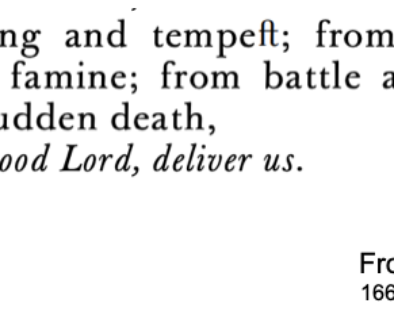Week 2: Rack it.
Couldn’t resist. I’ll try to keep the ‘rack’ references to a minimum. Sometimes it just works.
So, I forgot to hit record on our flash recorder again. Week #2. Lovely. So, this is our second week without a sermon podcast. I promise… I’m preaching ’em. I just can’t remember to record ’em. Now many of you might say, how hard is it to ask someone to hit record for you? I’ll simply refer you to Mark 8:33b.
We’ll take another shot next week.
Quickly becoming one of my favorite moments each Sunday is our 8:30 prayer gathering. About 20 of us huddle in the kitchen at various levels of nervousness, excitement, and sleepiness. We make sure everybody knows who is doing what. Our prayers give thanks for all God is doing, the way He has gone before us, the opportunities He gives us to be a team and to work together. We pray for the kids, our worship team, the readers, ushers, and preacher. This time, as soon as we were done, everybody grabbed 10 unfolded worship guides and folded them. Total time to fold 125 12-page worship guides– 43 seconds. This we will keep.
My message focused on the familiar scene of Isaiah 61– the description of a people who are broken-hearted, held captive by bad choices, and mourning the consequences of badness. From teh beginning of time, when face with this scene, humanity has asked: what do we do to make things right? When we get into a predicament and get stuck– our first question is how do we save ourselves? All of the options boil down to 2 categories– I’ll blog more about those tomorrow.
The Christian story has at its core the belief that we cannot save ourselves. The story of Jesus is at its humbling center, a story about humanity being rescued. There are four options for how we might engage with this story:
1. Closed rejection– no way that story can be true. In fact it is the existence of these stories that make the world such a bad place. See for example, Christopher Hitchens and his book God is not great
2. We have questions about the story: What does it mean? How does it interact with other stories? What does this story demand of my life? How do I wrestle with the implications of this story?
3. We accept the story, but we isolate it. We shield our life from it. God and his restoration project are a drawer in our dresser. This story is something we do on the weekends, usually sunday mornings. We are not sure we want to let the story be much more than nice religion.
4. We are open to the idea that this rescue, restoration story might be the news for which you have been waiting. You are wondering, how can I be a part of God’s great restoration project?
My fervent hope is that we would be a church made up of people coming at this story from ALL of these postures. What better place to engage these questions than in a community together.
Yesterday, we took one more step together. May the questions of the curious and the convinced fill our conversations and enliven our friendships.
